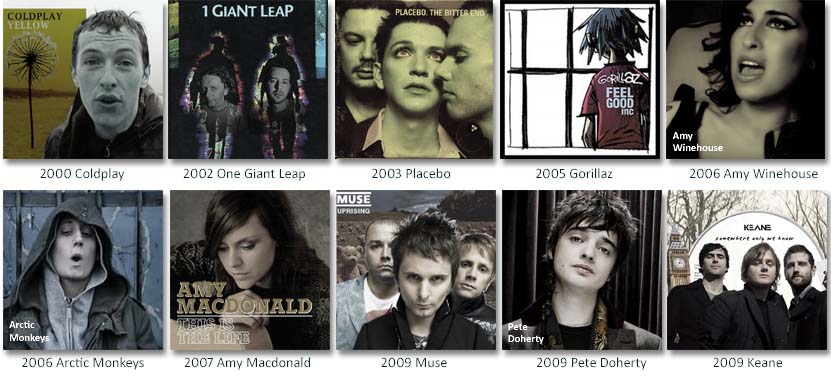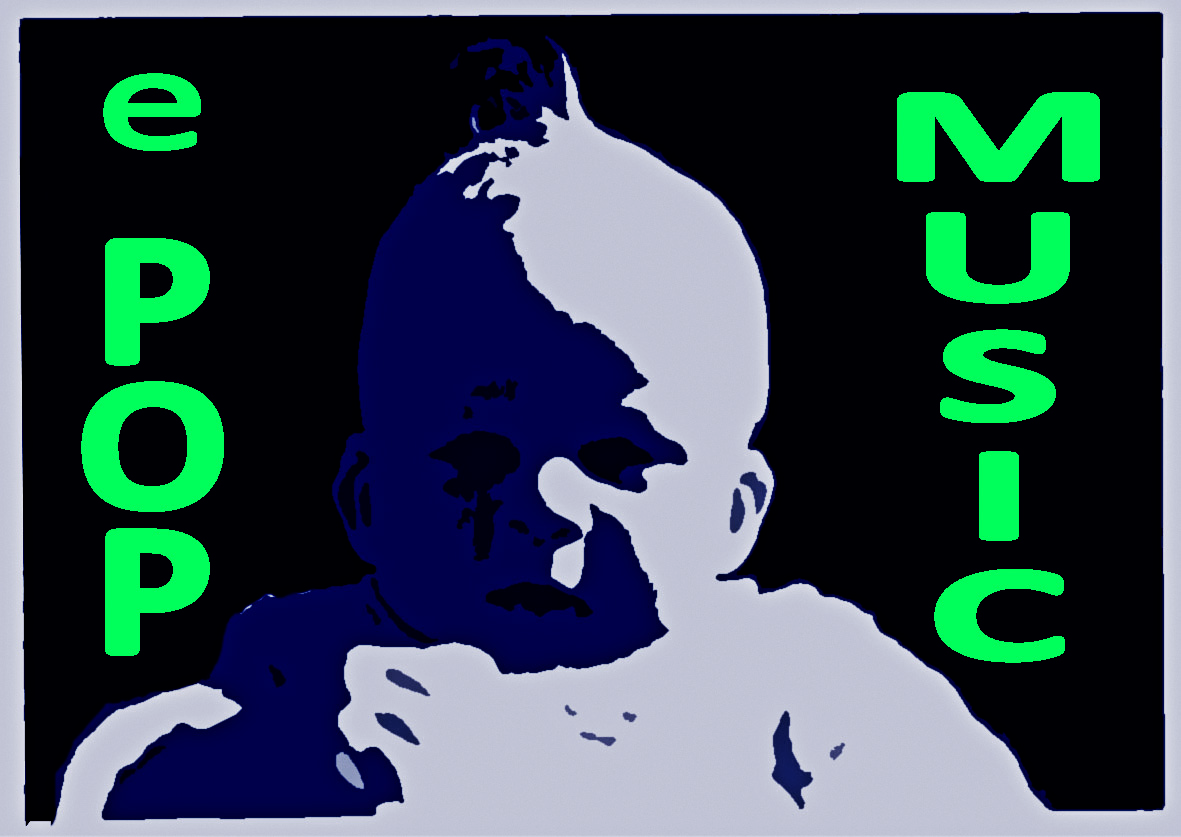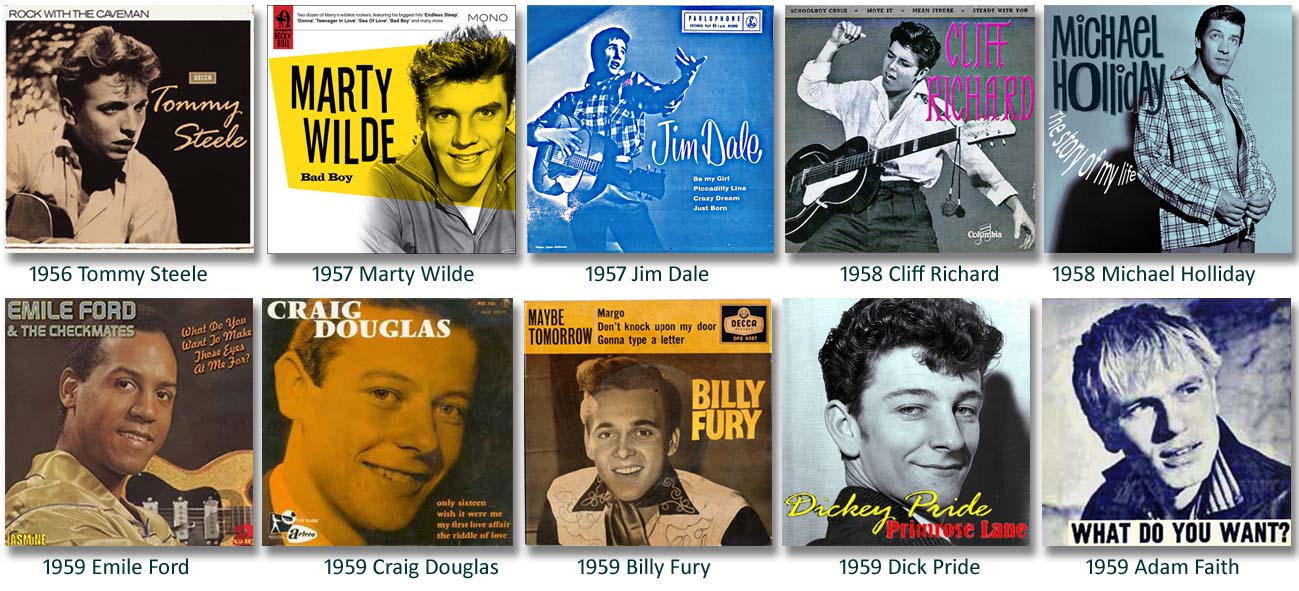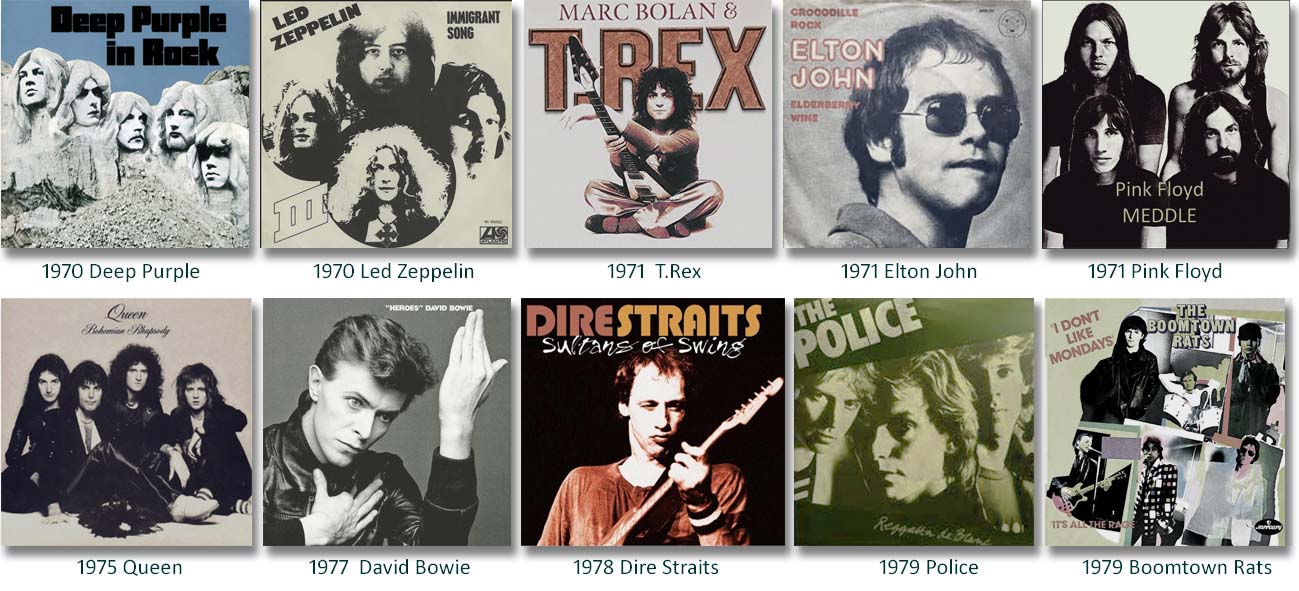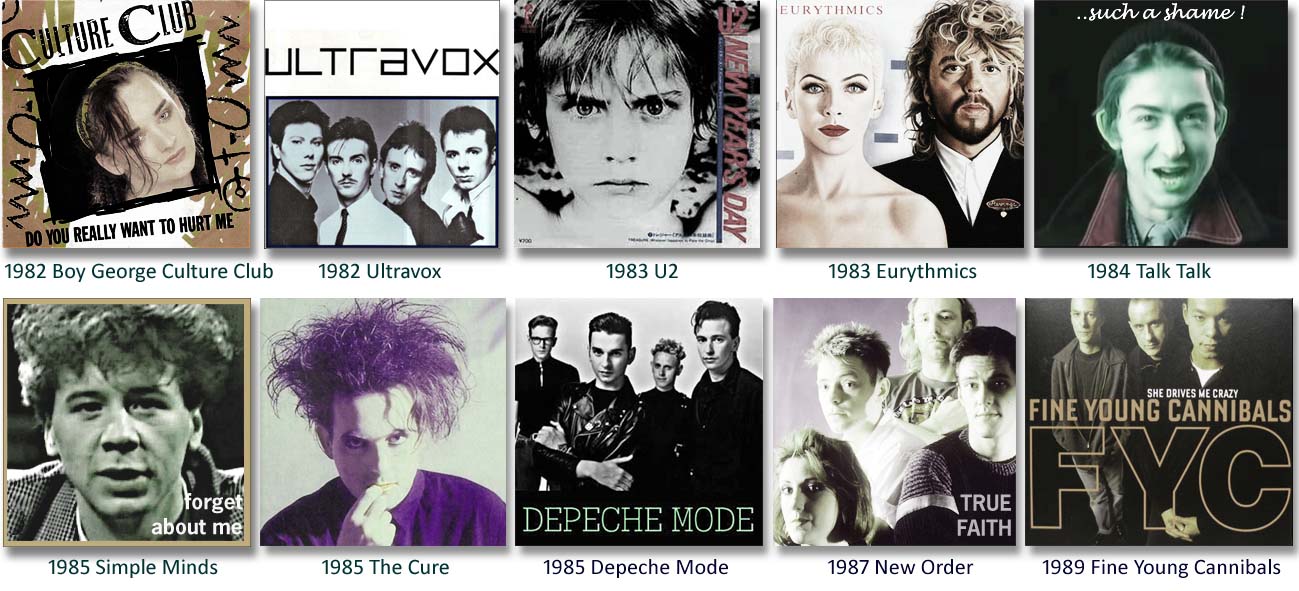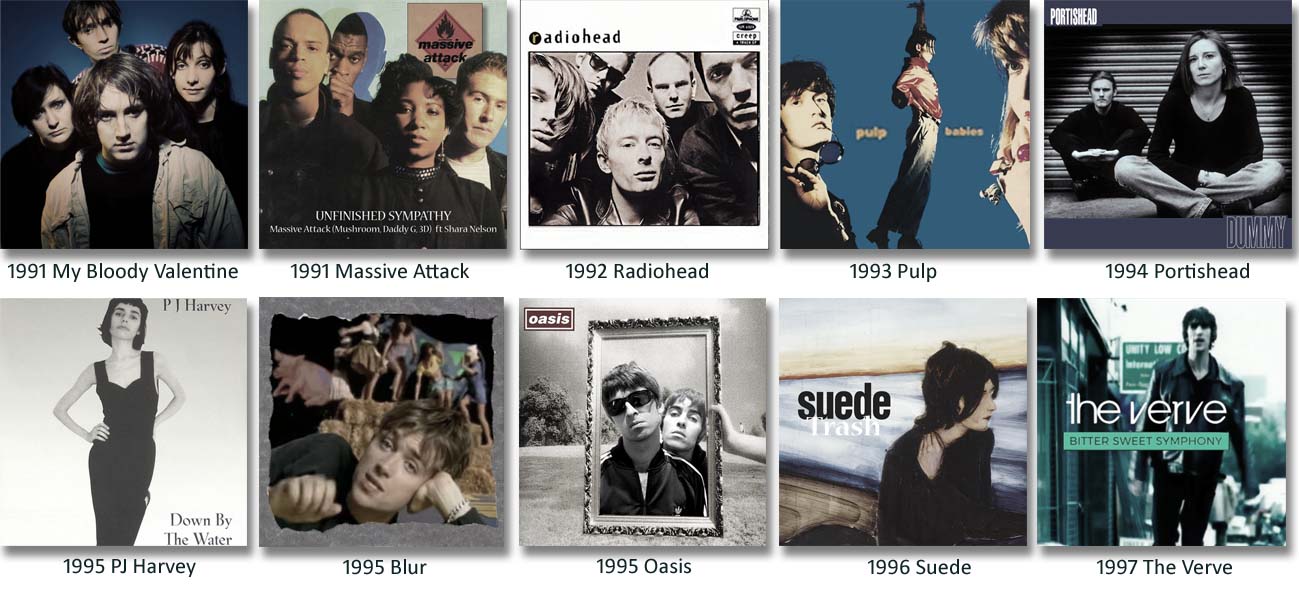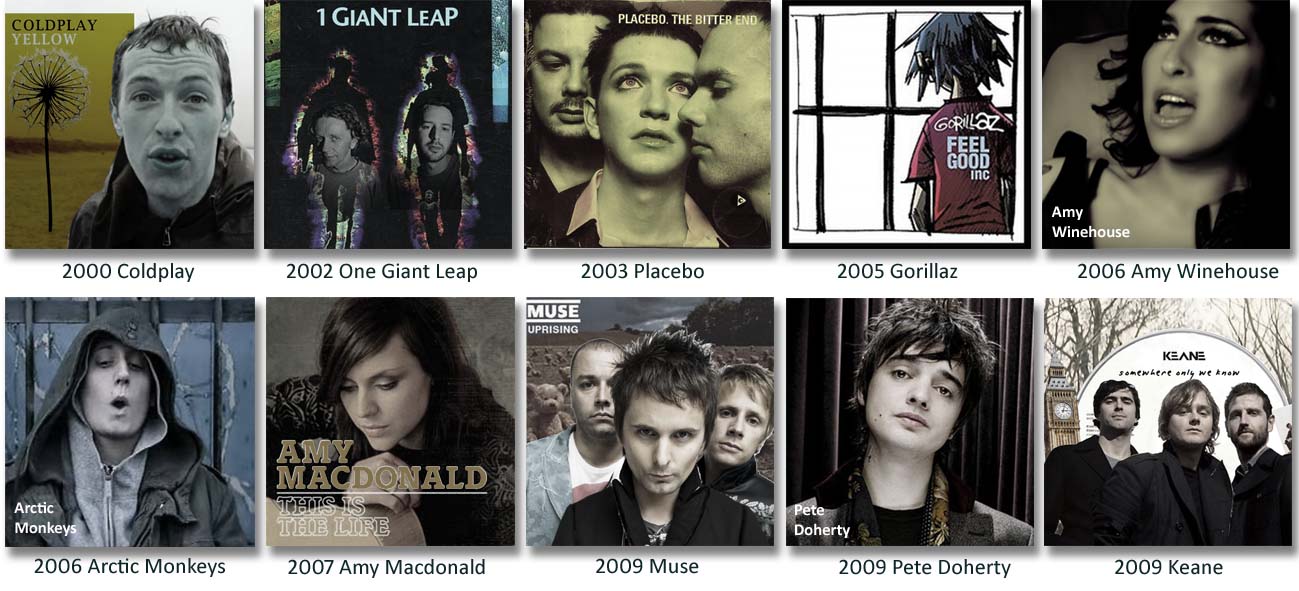POP MUSIC GENRE ∙ Folk ∙ ROCK ∙ RnB Soul ∙ Rap ∙ Pop song ∙ World music ∙
Rock UK
JOURNEY THROUGH 1'500 ROCK SONGS
ROCK ∙ rock America ∙ ROCK UK ∙ rock Europe ∙ rock Australia ∙
ROCK UK
Rock UK 50s
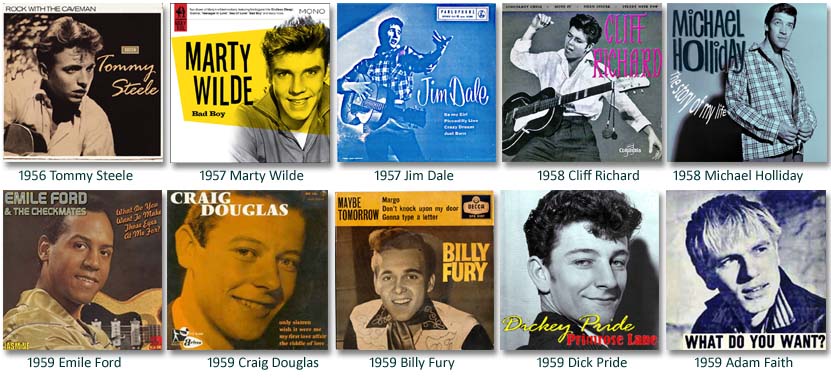
The advent of rockabilly in the mid-1950s in America spawned the launch of rock'n'roll in England. The first famous British rockers were Tommy Steele, Marty Wilde, Jim Dale and Cliff Richard in 1956-58, soon joined in the Charts in 1959 by Billy Fury, Adam Faith and West Indies born singer Emile Ford. As for the impact of this first wave of British rock, John Lennon (1940-1980) is remembered for stating in later interviews: "Before Elvis, there was nothing" and "Before Cliff and the Shadows, there had been nothing worth listening to in British music". Whilst the song 'Move it' (1958) is reputed to have been the first non-American rock hit, Billy Fury's cover of 'Wondrous place' (1960, orig. Jimmy Jones, USA) still ranks among the great rock classics today.
(.. more rock UK 50s)
Rock UK 60s
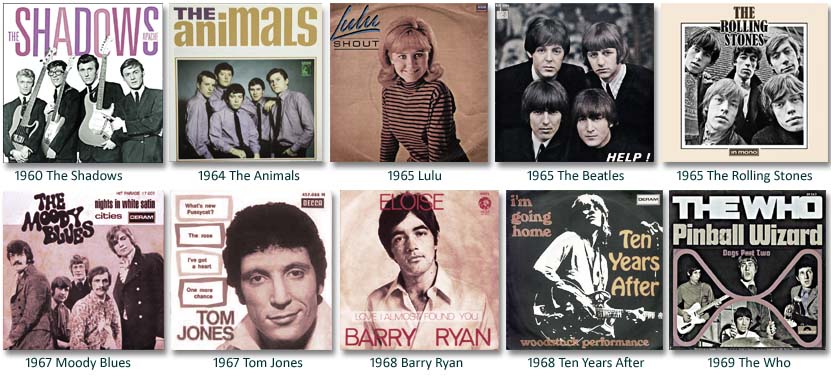
While the reverb guitar sound of the Shadows (Cliff Richard’s backing group) became a landmark of British rock’n’roll in the early 1960s, the inclusion of rock rythms into traditional English pop & folk shaped what became known as British beat music. The Beatles were part of this wave and achieved mass-popularity in the USA in late 1963, triggering a so-called British invasion of the American Charts. In the mid-60s, successful releases by the Animals, the Rolling Stones and the Who sparked a full-fledged British rock scene which itself spawned the British RnB rock, hard rock and progressive rock genres.
(.. more rock UK 60s)
Rock UK 70s
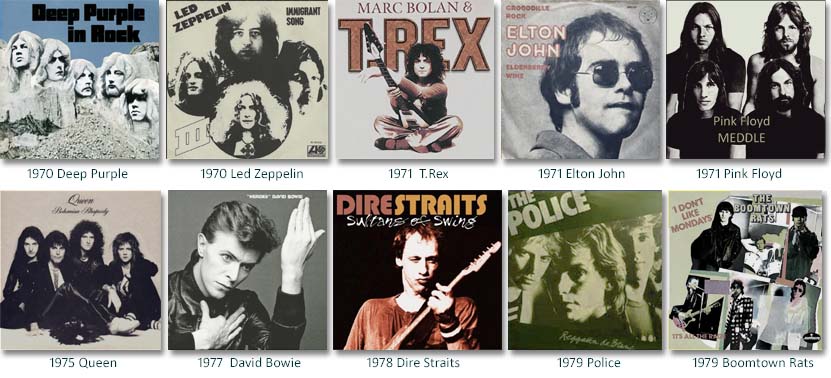
Hard rock and progressive rock had their heyday in the early 1970s under the leadership of the Rolling Stones, Led Zeppelin, Deep Purple and the Who for hard-rock and David Bowie, Pink Floyd and Genesis for progressive rock. The tendency to let rock evolve into music that is thematically and melodically richer than the mid 60s beat rock and late 60s prog. rock is exemplified in the two rock/classical music fusions ‘Concerto for Group and Orchestra’ (1969, Deep Purple, 50') and 'Atom heart mother' (1970, Pink Floyd, 24'), both featuring a rock band along with a philharmonic orchestra. This tendency towards melodic enrichment and longer pieces is confirmed in the songs Echoes (1971, Pink Floyd, 24') and Supper's ready (1972, Genesis, 23'), two essential references of psychedelic rock. At the same time, David Bowie's 1972 masterpieces Ziggy Stardust, Rock'n'roll suicide and Starman set high standards for British art-rock, both musically and in terms of the spectacular. British progressive rock subsequently saw the emergence of many great artists like Mike Oldfield, Supertramp, Queen, Dire Straits or the Police. Punk rock emerged in UK in 1975-76, driven by now cult names such as the Sex Pistols, the Damned, the Clash, the Jam, the Stranglers, Generation X (ft. Billy Idol) and the Undertones (ft. Fergal Sharkey). On this backbone, new wave and gothic rock developed in the late 70s as post-punk genres fueled by innovative bands like Siouxsie and the Banshees, the Cure, Joy Division, Simple Minds, the Boomtown Rats (ft. Bob Geldof) and Fisher-Z (ft. John Watts).
(.. more rock UK 70s)
Rock UK 80s
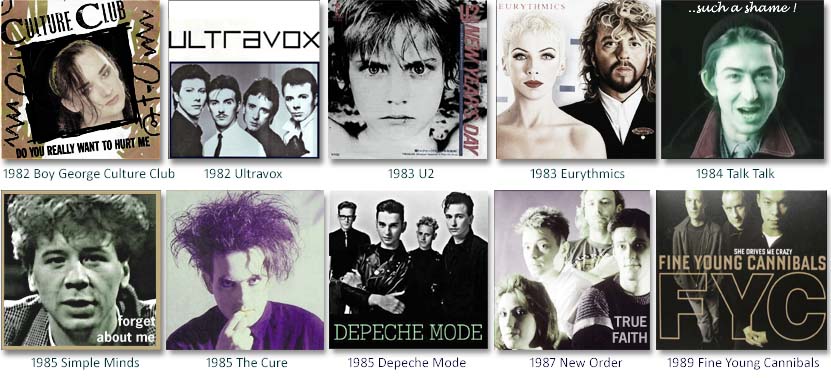
New wave and synth-pop produced a magnificent vintage of British pop music in the 1980s. Simple Minds, U2, Eurythmics, New Order, Boy George, Depeche Mode, Duran Duran, the Pet Shop Boys and Billy Idol rank among its most famous names but many others like Ultravox, Talk Talk, The Fixx, The Jesus And Mary Chain, Rupert Hine, Shriekback, Lloyd Cole, The House of Love or Echo & The Bunnymen equally delivered exceptional musical landscapes. The gothic rock scene also peaked, notably with The Cure, Siouxsie & The Banshees, Joy Division and The Smiths becoming some of the most influential bands in the world.
(.. more rock UK 80s)
Rock UK 90s
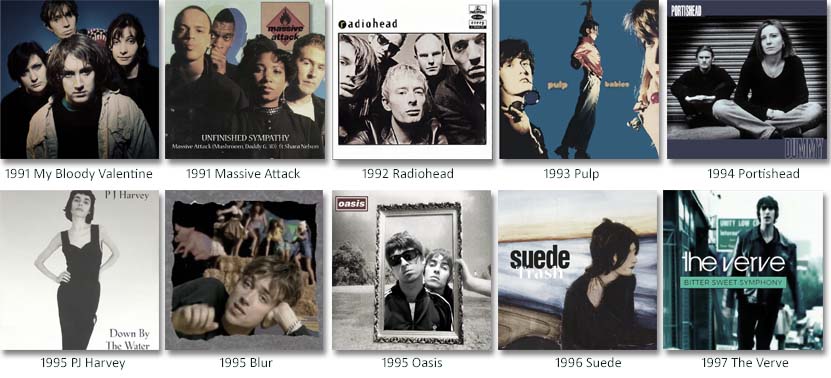
Notable new genres redefined British rock music in the 90s including Britpop, alternative rock, trip-hop and shoegazing. Britpop was a mainstream pop-rock wave lead in 1993-95 by the groups Pulp, Blur, Suede and Oasis. Alternative rock was marked by the somewhat grunge sound of Radiohead's debut single 'Creep' in 1992, the creative rock of prodigy PJ Harvey from 1992, the raw glam rock of Placebo from 1997 and the dense space-rock of Muse from 1999. Trip-hop burst in with the release of Massive Attack's album "Blue lines" in 1991 and Portishead's LP “Dummy” in 1994, two albums that helped define the trip-hop genre and garner its popularity. As for the shoegaze - or shoegazing - musical genre, it was initiated with the 1991 album "Loveless" by Irish avant-garde rock band My Bloody Valentine and spanned the 2000s.
(.. more rock UK 90s)
